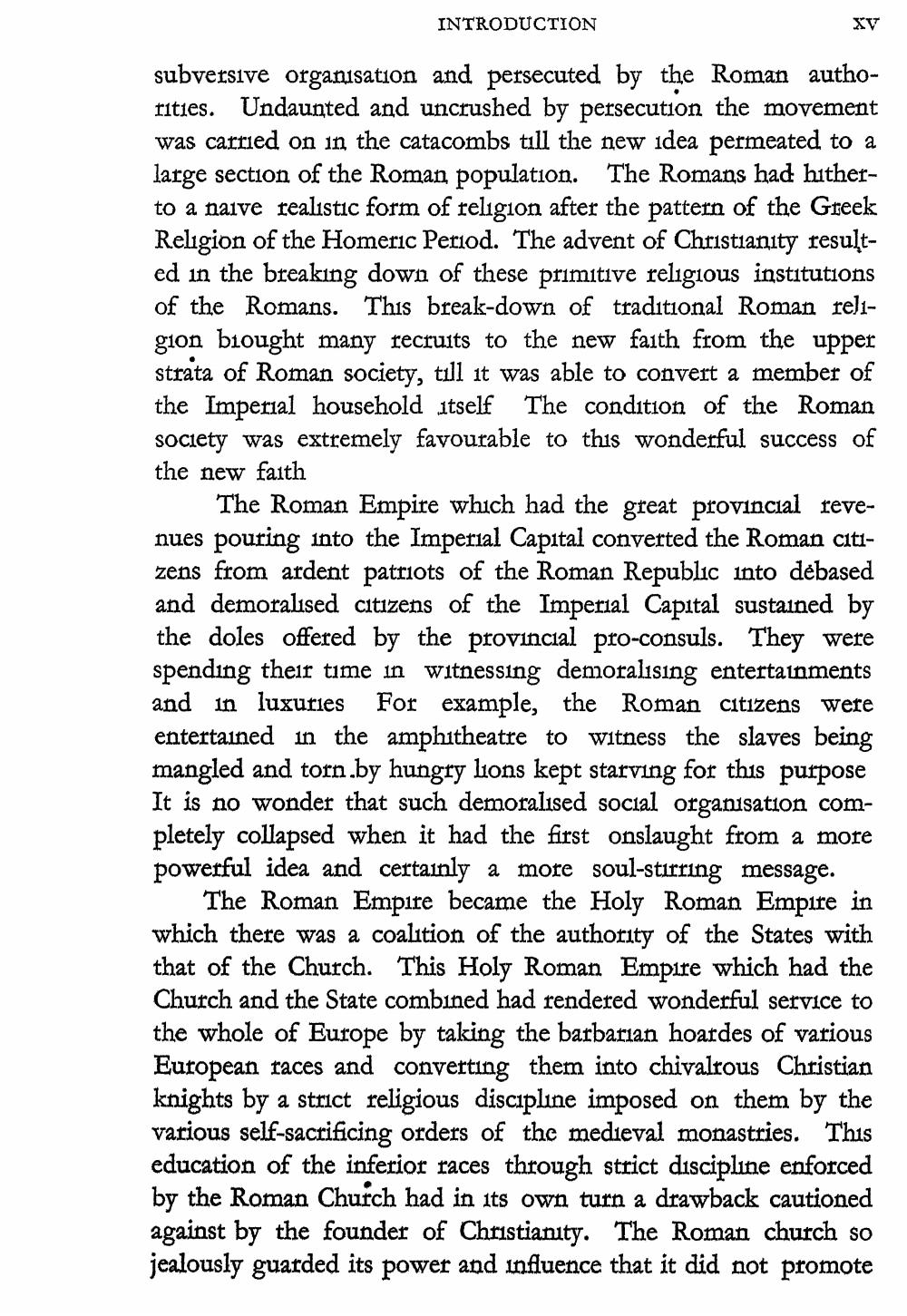________________
INTRODUCTION
XV
subversive organisation and persecuted by the Roman authorities. Undaunted and uncrushed by persecution the movement was carried on in the catacombs till the new idea permeated to a large section of the Roman population. The Romans had hitherto a naive realistic form of religion after the pattern of the Greek Religion of the Homeric Period. The advent of Christianity resulted in the breaking down of these primitive religious institutions of the Romans. This break-down of traditional Roman religion brought many recruits to the new faith from the upper strata of Roman society, till it was able to convert a member of the Imperial household itself The condition of the Roman society was extremely favourable to this wonderful success of the new faith
The Roman Empire which had the great provincial revenues pouring into the Imperial Capital converted the Roman citizens from ardent patriots of the Roman Republic into debased and demoralised citizens of the Imperial Capital sustained by the doles offered by the provincial pro-consuls. They were spending their time in witnessing demoralising entertainments and in luxuries For example, the Roman citizens were entertained in the amphitheatre to witness the slaves being mangled and torn by hungry lions kept starving for this purpose It is no wonder that such demoralised social organisation completely collapsed when it had the first onslaught from a more powerful idea and certainly a more soul-stirring message.
The Roman Empire became the Holy Roman Empire in which there was a coalition of the authority of the States with that of the Church. This Holy Roman Empire which had the Church and the State combined had rendered wonderful service to the whole of Europe by taking the barbarian hoardes of various European faces and converting them into chivalrous Christian knights by a strict religious discipline imposed on them by the various self-sacrificing orders of the medieval monastries. This education of the inferior races through strict discipline enforced by the Roman Church had in its own turn a drawback cautioned against by the founder of Christianity. The Roman church so jealously guarded its power and influence that it did not promote




